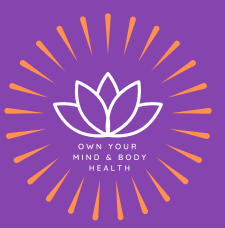
Have you ever caught yourself sighing and thought, “Whoa… where did that come from?” Or taken a deep breath after a tough conversation and felt your whole nervous system shift gears?
Turns out, there’s way more going on in those moments than meets the eye—or the lungs.
A new study from Yale’s Dr. Perry Wilson caught my attention this week, and trust me—it’s not just for the science nerds (though I see you, and I love you). It’s about something we all do roughly 20,000 times a day: breathe.
And it’s about how those breaths might be saying more about your mental health than your FitBit or therapist ever could.
You Breathe Like You—And Only You
Researchers outfitted 100 people with a special nasal device that tracked every inhale and exhale for a full 24 hours. Think of it like a biometric fingerprint… but for your nose.
Here’s what they found:
Each person had a totally unique breathing pattern.
And not just for a day—those “respiratory fingerprints” stayed consistent over months and even years.
In other words, your breath is your signature. Literally.
Your Mood Leaves Clues in Every Breath
But here’s where it gets wild—and deeply human.
When researchers compared breathing patterns to mental health data (think: depression and anxiety screening scores), clear patterns emerged:
People with higher depressive symptoms inhaled faster and more forcefully.
Folks with higher anxiety had irregular pauses between breaths.
Even traits linked to autism spectrum tendencies showed up in the way people paused mid-breath.
And these weren’t people diagnosed with any of these conditions. This was just normal variability. Which means… your body might be whispering things your brain hasn’t caught up to yet.
What This Means for Us (Especially Those of Us Over 50)
Let’s be real: getting older comes with a growing list of things to “stay on top of”—blood pressure, blood sugar, brain fog, mood swings, the works.
But what if one of your best indicators for how you’re really doing… is your breath?
Not just how you’re breathing, but what it’s saying:
That shallow, rapid breath after reading the news? Maybe it’s your anxiety trying to flag you down.
The deep exhale after a hug or a good laugh? That’s your nervous system thanking you.
We already know breathwork helps calm the body. We know practices like yoga, tai chi, and even just slow nose-breathing can drop cortisol and regulate mood.
But this study? It suggests your breath is already talking. Whether you’re listening or not.
So What Can You Do?
Here’s the beauty of it: You don’t need a fancy machine to start tuning in.
Try this today:
Pause.
Inhale through your nose slowly for a count of 4.
Exhale even slower for a count of 6.
Repeat for a few rounds.
Just… notice.
No fixing. No judgment. Just awareness.
Because awareness is the first step toward healing—and your breath might just be your most loyal, low-tech guide.
To paraphrase the poet Sylvia Plath (and Dr. Wilson):
Take a deep breath.
And listen to the old brag
of your heart:
I am. I am. I am.
Want more mind-body insights like this?
Join my newsletter for real-life wellness tips, breathwork tricks, and aging-well inspiration that actually feels good.
When you sign up, you’ll get 5 days of the Balance Challenge—that’s 5 short videos delivered to your inbox to help you build strength, calm your nervous system, and feel more grounded. One day at a time. Click here to join now!
However you found your way here—whether you’re chasing calm, clarity, or just trying to catch your breath—I’m glad you did.
Your body is always talking. Sometimes, it just speaks in exhales and pauses.
The more we learn to listen, the more we remember: healing doesn’t have to be loud. It can start with a whisper.
Or a breath.
